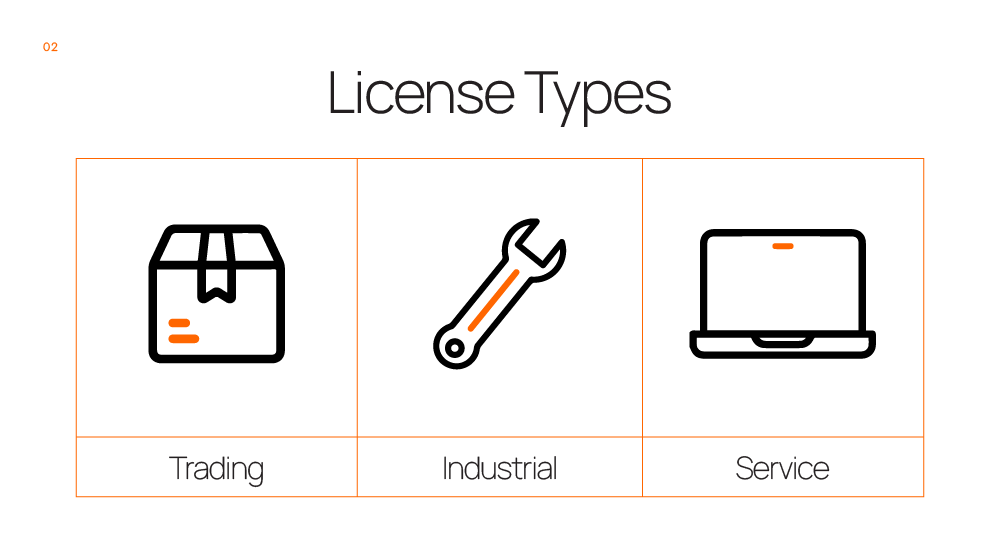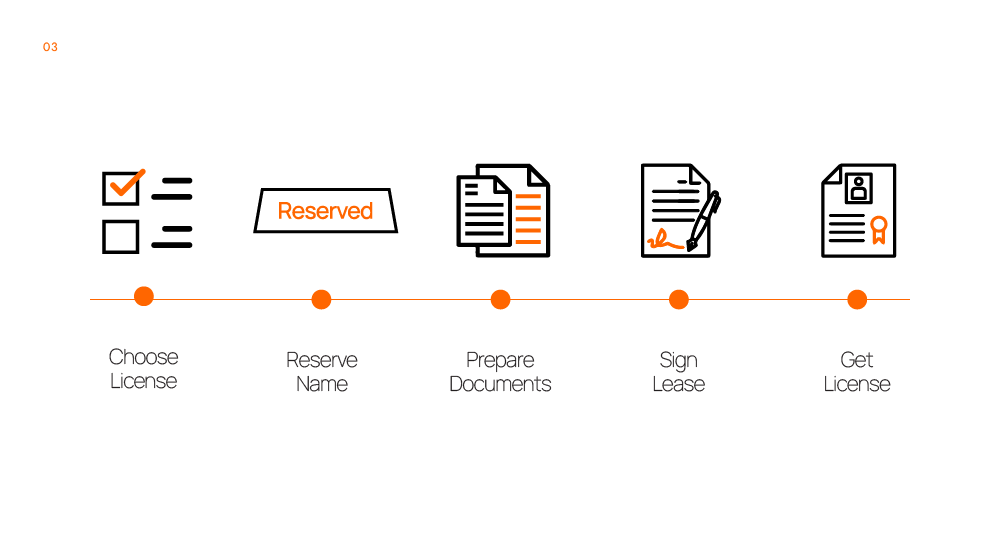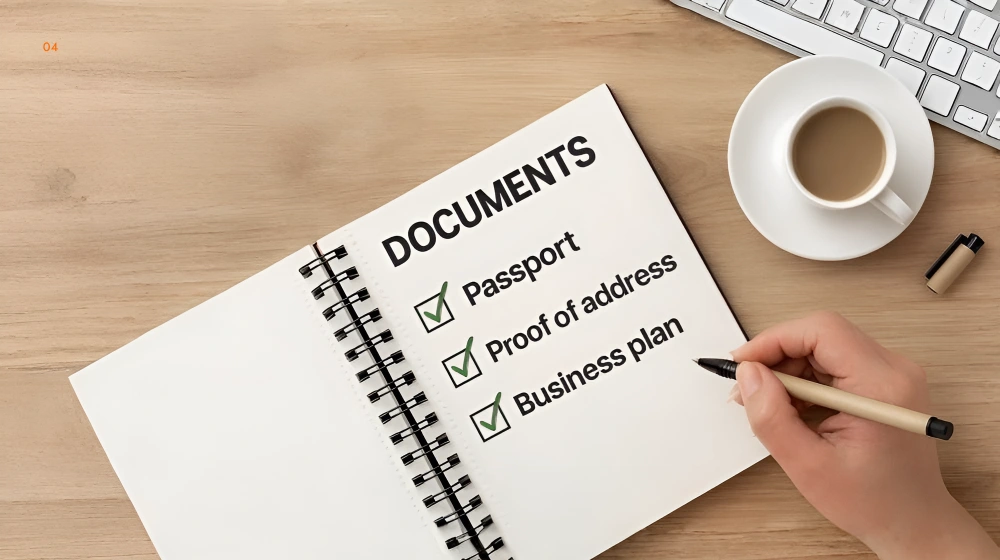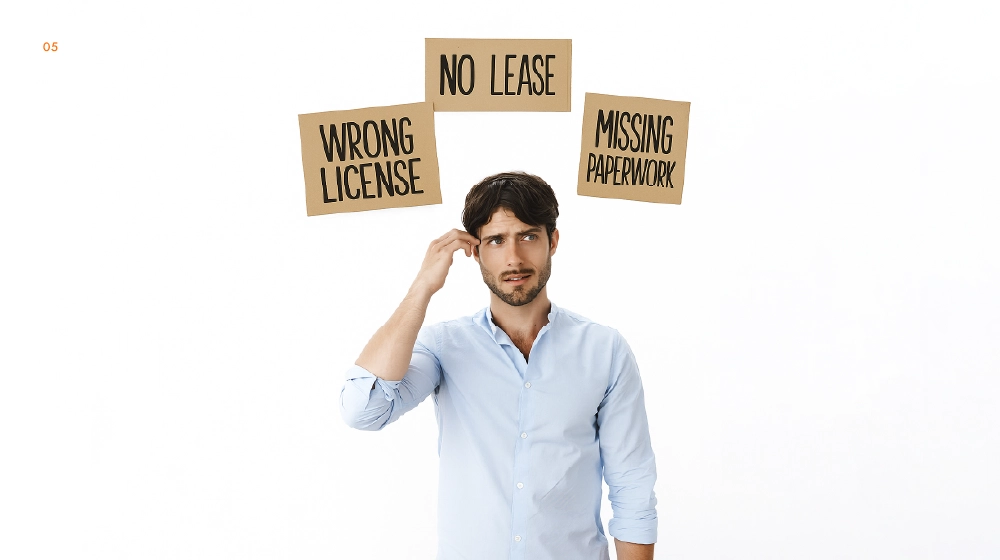Setting up a business in the UAE has long been attractive for global entrepreneurs, but in 2025, one jurisdiction continues to stand out, which is JAFZA, the Jebel Ali Free Zone. As one of the most established and strategically located free zones in the region, JAFZA is a preferred launchpad for international businesses looking to expand into the Gulf and beyond.
The most common question we hear from foreign entrepreneurs is this: Can I get a JAFZA trade license without a local sponsor? The short answer is yes. In 2025, the rules are clear. You can hold 100% ownership of your company in JAFZA without needing an Emirati partner or sponsor. This makes the JAFZA trade license one of the most sought-after licenses for businesses seeking autonomy, regional access, and regulatory clarity.
In this blog, we’ll walk you through everything you need to know: what a JAFZA trade license is, who qualifies, how to apply, the required documents, and why more global businesses are choosing JAFZA over the mainland. We’ll also discuss the license types, structure options, costs involved, common errors, and how to stay compliant once you’re set up.
Whether you’re launching a trading business, a service firm, or setting up a branch of an existing company, this guide will help you move forward with clarity and confidence.
Table of Contents
What Is a JAFZA Trade License and Who Needs One?

A JAFZA trade license is the official authorization issued by the Jebel Ali Free Zone Authority (JAFZA) that legally permits a company to carry out specific business activities within the boundaries of the free zone. In 2025, obtaining a JAFZA trade license is a mandatory step for any company operating inside JAFZA, whether it’s engaged in trading, manufacturing, logistics, or providing services.
The JAFZA trade license continues to be one of the most in-demand licenses in the UAE due to its unique advantages, chief among them being 100% foreign ownership without the need for a local Emirati sponsor. A business holding a valid JAFZA trade license can open a corporate bank account, apply for UAE residence visas for staff and owners, lease warehouses or offices within the free zone, and gain access to global trading networks via Dubai’s unmatched infrastructure.
Who Commonly Uses a JAFZA Trade License?
A JAFZA trade license is used by a broad range of businesses. Some of the most common types include:
- Foreign entrepreneurs and investors who want full control of their business without involving a UAE national shareholder or sponsor.
- Global distribution companies that rely on Jebel Ali Port and Al Maktoum International Airport to access major shipping and air cargo routes.
- Multinational corporations establishing regional headquarters or logistics hubs to serve the GCC, Africa, or South Asia.
- Digital businesses, consultants, and service providers seeking a sponsor-free, tax-efficient location in Dubai to base their regional operations.
- Manufacturing and assembly businesses looking to benefit from JAFZA’s land leasing, customs exemptions, and strategic location.
In 2025, businesses in fast-growing sectors like AI, green energy, e-commerce, and supply chain tech are also applying for a JAFZA trade license to tap into the region’s investment momentum.
100% Foreign Ownership: No Sponsor Needed
The biggest advantage of getting a JAFZA trade license is the ability to maintain 100% foreign ownership, without exception. In the mainland UAE, while many activities have opened up under the updated Commercial Companies Law, certain business categories still require a UAE national either as a service agent or as a minority partner. But within JAFZA, the rules are different and far more favorable to foreign investors.
When you apply for a JAFZA trade license, you’re not dealing with the Department of Economic Development (DED), which governs mainland companies. Instead, your business is directly registered with the Jebel Ali Free Zone Authority. That means you’re not subject to mainland sponsorship structures, and there is no requirement—silent or otherwise—to allocate shares to an Emirati.
This independence offers a long list of tangible benefits that continue to make the JAFZA trade license one of the most preferred routes for global entrepreneurs setting up in the UAE:
You keep all profits
With a JAFZA trade license, there’s no legal obligation to share ownership or dividends with a local sponsor in UAE. This allows you to reinvest your earnings into growth or expansion without compromise.
You control the business
All strategic decisions, from hiring to product development, remain in your control. Your board composition, voting structure, and equity distribution are entirely dictated by your own company setup, not by local sponsorship requirements.
You build credibility
Banks, international suppliers, and logistics partners value the transparency and legal clarity that come with owning a fully foreign-held company under a JAFZA trade license. Compared to mainland entities with opaque sponsor structures, your JAFZA company signals clean governance and straightforward compliance. If you’re still deciding between free zones and the mainland, here’s a clear breakdown of Dubai Free zone vs Mainland to help you choose the right setup.
As of 2025, there are no hidden provisions or side agreements that require involving a UAE national in your company when you operate under a JAFZA trade license. This is not just in theory, it is fully backed by JAFZA’s regulatory framework, which has been designed to encourage foreign direct investment without barriers.
Choosing the Right Business Structure in JAFZA
JAFZA offers three main business structures, depending on the number of shareholders and the origin of the business entity. Choosing the right structure not only determines how your company will be governed but also impacts how you apply for your JAFZA trade license, what documents are required, and how your legal obligations are framed in the free zone.
Free Zone Establishment (FZE)
A Free Zone Establishment is a single-shareholder entity. That shareholder can be either an individual or a corporate body. It’s ideal for solo investors, consultants, or small trading operations that don’t require a board or multi-shareholder voting rights. Applying for a JAFZA trade license under an FZE structure is straightforward and offers complete operational control to one party. This is especially popular among independent investors looking for 100% ownership and flexibility with minimal bureaucracy.
Free Zone Company (FZCO)
An FZCO allows between 2 to 50 shareholders. These shareholders can be natural persons (individuals) or legal entities (corporate shareholders). If you plan to launch a business with partners or invest as a group, this is the preferred structure. Each shareholder’s percentage of ownership is reflected in the company’s share capital, and the governance framework is based on internal agreements. A JAFZA trade license under an FZCO structure offers the same sponsor-free ownership benefits but includes additional setup requirements like board resolutions from each corporate shareholder and more detailed incorporation documents.
Branch of a Foreign or UAE Company
This option is designed for businesses that already exist elsewhere, either inside or outside the UAE and want to establish a physical presence in JAFZA. A branch is not a separate legal entity; it operates under the name and legal identity of the parent company. Still, it must obtain its own JAFZA trade license to legally operate within the free zone. Branch setups are commonly used by multinational corporations that want to leverage Dubai’s logistics advantages without incorporating a completely new entity.
Each of these structures is eligible to receive a JAFZA trade license, and in all three cases, the company retains 100% foreign ownership. There’s no requirement to involve a local sponsor or shareholder, regardless of the structure you choose.
The business structure you select will affect several factors:
- The exact documentation required during your JAFZA trade license application
- The internal legal framework of the business
- The way costs are calculated, including your JAFZA license cost
For example, an FZCO with multiple corporate shareholders might need legalized documents from multiple countries, while an FZE may only require a passport and proof of address.
If you’re unsure which model aligns best with your short- and long-term goals, it’s wise to speak with a business structuring expert before submitting your JAFZA trade license application. The right foundation can save you time, reduce legal exposure, and prevent costly changes in the future.
Types of Licenses You Can Apply For in JAFZA

A JAFZA trade license isn’t one-size-fits-all. Each license type is aligned with a specific business activity, and choosing the right one is key to operating smoothly. In 2025, the most common types issued under the JAFZA trade license include:
Trading License
Covers import, export, distribution, and storage of goods. This version of the JAFZA trade license suits companies trading in specific product lines such as electronics, raw materials, or industrial supplies.
General Trading License
Allows multiple, unrelated product categories under one license. Ideal for large-scale trading firms and wholesalers looking for flexibility under a single JAFZA trade license.
Service License
For service-based businesses like IT, consulting, and marketing. This JAFZA license does not permit physical trading but is perfect for professional services operating locally or internationally.
Industrial License
Grants permission for light manufacturing, assembly, and packaging. Businesses with an industrial-focused JAFZA trade license typically lease industrial space and follow specific safety and compliance rules.
E-Commerce License
Tailored for online platforms selling goods or services digitally. This JAFZA trade license allows access to the region’s logistics network while running a digital-first business.
Professional License
For certified professionals, lawyers, engineers, auditors offering regulated, credential-based services. This version of the JAFZA trade license requires proof of qualifications. If you’re going the professional route, here’s how to get a professional license in Dubai in 10 easy steps.
All these licenses fall under the broader JAFZA trade license framework. Choosing correctly from the start avoids delays in visa processing, office leasing, and bank account setup. It also ensures your activity aligns with regulations and helps you estimate the correct JAFZA license cost from day one.
Step-by-Step: How to Get a JAFZA Trade License Without a Sponsor

If you’re wondering how to get a JAFZA trade license without involving a local sponsor, here’s the current 2025 procedure broken down into steps:
1. Choose your structure and license type (FZE, FZCO, or branch; Trading, Service, etc.)
Start by identifying the most suitable setup for your business. This decision will shape your licensing, documentation, and even the overall Jebel Ali free zone license cost, which varies depending on the structure and business activity. But according to Jafza, they offer business licenses that start at AED 5,000.
2. Reserve your trade name with JAFZA
The name must be unique and follow naming rules. Make sure the trade name complies with UAE naming standards, no offensive terms, religious references, or similarity to existing entities.
3. Submit initial application with details about business activity, shareholders, and capital
This is the formal start of the process. You’ll declare your business purpose and provide initial shareholder info, which is necessary for your JAFZA trade license approval.
4. Prepare required documents
Having the correct documentation in place is essential to prevent delays. For many applicants, this stage can influence the total Jebel Ali free zone license cost, especially if document attestation is needed from outside the UAE.
5. Sign lease agreement for office or warehouse space inside JAFZA
Your lease must align with the business activity listed on your license. The size and type of space also affect your JAFZA trade license and the related Jebel Ali free zone license cost.
Many businesses also choose JAFZA because of its built-in cost advantages. Here are 5 ways JAFZA Freezone helps companies cut costs and scale faster.
6. Get initial approval and pay the applicable fees
Once reviewed, JAFZA will issue initial approval. This includes license issuance fees, establishment card fees, and facility rental charges.
7. Receive your JAFZA trade license, establishment card, and corporate documents
These documents officially register your company and authorize you to begin operations in the free zone.
8. Open corporate bank account using your license and documents
UAE banks will require your JAFZA trade license, shareholder passports, and often proof of business activity. Most JAFZA companies find the banking process smoother than in other zones due to the free zone’s established credibility.
9. Apply for residence visas for shareholders and staff
The number of visas depends on your office size and license type. Biometric data submission must be done in person at the designated UAE centers.
All of this can be completed remotely, except for biometrics during the visa process. Most applications, when complete and correct, are processed in 7 to 14 working days, making the JAFZA trade license one of the fastest and most efficient business setup options in the UAE.
Documentation Checklist (and How to Get It Right)

Applying for a JAFZA trade license in 2025 requires several key documents. Each serves a specific purpose in verifying your identity, business intent, and legal standing. Here’s a consolidated checklist to help you stay organized and avoid delays:
Passport copies of shareholders, directors, and managers
Valid passports are required for all individuals involved in the company setup. Ensure copies are clear and unexpired.
Proof of address for each shareholder (utility bill or bank statement)
This must be recent.Typically issued within the last 3 months, and either in English or accompanied by a legal translation.
Business plan outlining activities, markets, and operations
A strong business plan helps JAFZA evaluate the scope and sustainability of your proposed activities under your JAFZA trade license.
Board resolution (for corporate shareholders)
This document confirms the parent company’s official decision to establish a new entity in JAFZA.
Memorandum and Articles of Association
These foundational documents define your company’s legal structure, ownership, and operational guidelines.
Trade name reservation certificate
Issued by JAFZA after your proposed name is approved. This is mandatory for proceeding with your JAFZA trade license.
KYC and UBO forms provided by JAFZA
Know Your Customer and Ultimate Beneficial Ownership declarations are required to ensure transparency and regulatory compliance.
No Objection Certificate (NOC) (if applicable for UAE residents)
If any shareholder or director currently holds a UAE visa, a NOC from their existing sponsor will be needed.
JAFZA lease agreement (for your office or warehouse)
The lease must align with your license type and business activity. It’s a mandatory part of your JAFZA license file.
Missing paperwork is a common setup killer. Our full guide on business documents required for business setup in Dubai can help you stay ahead.
Common Mistakes Foreign Entrepreneurs Make (and How to Avoid Them)

Many applicants run into avoidable issues when applying for a JAFZA license. These mistakes often lead to delays, added expenses, or in some cases, rejection of the application. Here are a few of the most common missteps:
Choosing the wrong license type, then needing costly amendments later
Selecting a license that doesn’t match your actual business activity can result in compliance issues and the need to amend your JAFZA trade license, which costs both time and money.
Not leasing the correct office or warehouse space, which can delay the application
Each JAFZA trade license type has specific space requirements. If your leased premises don’t align with the license scope, your application won’t move forward.
Assuming a local sponsor is needed, and unnecessarily involving an Emirati agent
Despite clear free zone regulations, some still believe a local partner is required. This not only adds unnecessary legal complexity but also defeats one of JAFZA’s core benefits… 100% foreign ownership.
Submitting incomplete documents, especially when corporate shareholders are involved
Corporate shareholders often require notarized documents and board resolutions. Missing just one detail can stall the entire process.
Bank account issues, such as not preparing compliance paperwork for onboarding
Even after receiving your JAFZA license, failing to prepare proper documentation for banks can delay account opening for weeks.
Before diving into paperwork and approvals, it’s smart to understand the real hurdles. Here are 8 common challenges entrepreneurs face in Dubai setup and how to avoid them from the beginning.
Is JAFZA Right for You in 2025?
If you’re looking to set up a globally connected business in the UAE with 100% ownership, no local sponsor, and access to Dubai’s ports, the JAFZA trade license is one of the strongest options available.
It offers credibility, flexibility, and strategic advantages that few other jurisdictions can match. You’ll also benefit from operating in one of the most recognized free zones in the region, with a long-standing reputation and world-class infrastructure.
At GCG Structuring, we’ve helped entrepreneurs, SMEs, and international firms set up sponsor-free companies in JAFZA with full transparency and end-to-end support. From choosing the right license to submitting compliant documents, we make sure the entire setup runs smoothly.
FAQ
1. 0 Can I change my JAFZA trade license activity after it's issued?
Yes, but it requires formal amendments, additional fees, and approval from JAFZA. It’s easier to get it right from the start.
2. 0 What happens if I lease the wrong type of space for my license?
Your application may be delayed or rejected. The leased space must match your license type and business activity.
3. 0 Do I need a local Emirati sponsor in JAFZA?
No. With a JAFZA trade license, you can maintain 100% foreign ownership. No sponsor or local partner is required.





